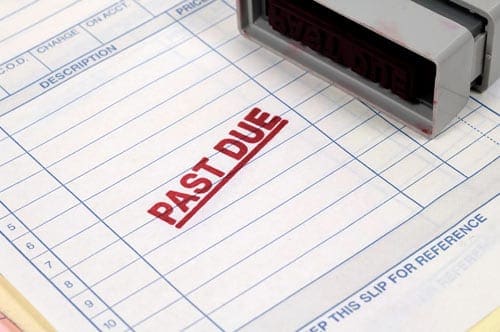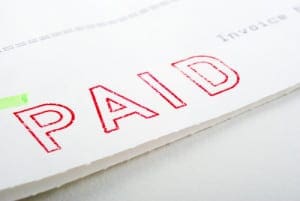How a Collection Agency Works
As business grows so can outstanding invoices, and eventually the ability to effectively call on all outstanding invoices can become difficult, if not impossible. Outstanding payments of 60 days or less can often times be easily collected in-house simply with a reminder notice by mail, but with each passing month thereafter it becomes increasingly difficult to recover debt and it’s inarguable that it becomes a necessity to contact the debtors by telephone. This is the period where it becomes frustrating and possible unprofitable, and knowing how a collection agency works can be a real game changer for many.
Collection agencies specialize in debt collection, and efficiently pursues the recovery of payments of debts owed by consumers or businesses. Most collection agencies operate as agents of creditors and receive a percentage of either the actual amount recovered or they buy the entire debt for a fee and are compensated according to what every they are able to successfully collect on their own.
We found the following information from Investopedia which helps to gives a deeper understanding of how a collection agency works, how they buy debt, and how debt collectors get paid.
The Business of Collection Agencies
 Debt collectors often work for debt-collection agencies, though some operate independently and some are also attorneys. Sometimes these agencies act as middlemen, collecting customers’ delinquent debts – debts that are at least 60 days past due – and remitting them to the original creditor. The creditor pays the collector a substantial percentage, typically 25% to 45%, of the amount collected. Debt collection agencies collect delinquent debts of all types: credit card debt, medical debt, automobile loan debt, personal loan debt, business debt, student loan debt and even unpaid utility and cell phone bills.
Debt collectors often work for debt-collection agencies, though some operate independently and some are also attorneys. Sometimes these agencies act as middlemen, collecting customers’ delinquent debts – debts that are at least 60 days past due – and remitting them to the original creditor. The creditor pays the collector a substantial percentage, typically 25% to 45%, of the amount collected. Debt collection agencies collect delinquent debts of all types: credit card debt, medical debt, automobile loan debt, personal loan debt, business debt, student loan debt and even unpaid utility and cell phone bills.
Debt collectors get paid when they recover a delinquent debt; the more they recover, the more they earn.
Collection agencies tend to specialize in types of debt. For example, an agency might only collect delinquent debts of at least $200 that are less than two years old. A reputable agency will also limit its work to collecting debts that are within the statute of limitations, which varies by state.
For difficult-to-collect debts, some collection agencies also negotiate settlements with consumers for less than the consumer owes. Debt collectors may also refer cases to lawyers who file lawsuits against customers who have refused to pay the collection agency.
Collection Agencies That Buy Debt
When the original creditor has determined that it isn’t likely to collect, it will cut its losses by selling that debt to a debt buyer. Creditors package together numerous accounts with similar features and sell them as group. Debt buyers can choose from packages of accounts that are not that old and that no other collector has worked on yet, accounts that are quite old and that other collectors have failed to collect on, and accounts that fall somewhere in between.
Debt buyers often purchase these packages through a bidding process, paying on average 4 cents for every $1 of debt face value. In other words, a debt buyer might pay $40 to purchase a delinquent account where the balance owed is $1,000. The older the debt, the less it costs, since it is less likely to be collectible.
The type of debt also influences the price; mortgage debt is worth more, while utility debt is worth less. Debt buyers keep everything they collect; because they have purchased the debt from the original creditor, they don’t send any of the amount collected to that creditor.
What Debt Collectors Do For Businesses


Debt collectors also contact delinquent borrowers who have already had a judgment against them, meaning that the court has ordered them to repay a certain amount to a particular creditor. Even when a creditor wins a judgment, it can be difficult to collect the money. Creditors can hire debt collectors to do this work, which may include placing levies on bank accounts or motor vehicles, garnishing wages, placing a lien on property or forcing the sale of an asset.
Compare Collection Agency Pricing Now
How Reputable Collection Agencies Operate
Debt collectors have a bad reputation for harassing consumers. More consumers complain to the Federal Trade Commission about debt collectors than about any other industry. But there are debt collectors who are careful not to violate consumer protection laws. Here’s what you can expect from a reputable collector.
In contacts with debtors, a collector who behaves properly will be fair, respectful, honest and law abiding. After you make a written request for verification of a debt you’ve been contacted about, the collector will suspend collection activities and send you a written notice of the amount owed, the company you owe it to and how to pay it. If the collector can’t verify the debt, the company will stop trying to collect from you. It will also tell the credit bureaus that the item is disputed or request that it be removed from your credit report. If the collector is working as a middleman for a creditor and doesn’t own your debt, it will notify the creditor that it has stopped trying to collect because it couldn’t verify the debt.
Reputable debt collectors will try to obtain accurate and complete records so they don’t pursue people who don’t really owe money. If you tell them the debt was caused by identity theft, they will make a reasonable effort to verify your claim. They also won’t try to sue you for debts that are beyond the statute of limitations. They will not harass or threaten you or treat you differently because of your race, sex, age or other characteristics. They will not publicize any debt you owe or try to deceive you in order to collect a debt, nor will they pretend to be law enforcement agents or threaten you with arrest. They also won’t contact you before 8:00 a.m. or after 9:00 p.m. without your permission to do so.
Debt Collection Is A Legitimate Businesses


You should of course put up your guard when a collector contacts you, and you should know your rights and understand what debt collectors are and aren’t allowed to do. But if you know a bit about how the business works, you might be able to resolve your delinquent debt amicably.
One cautionary note: Debts fall under a statute of limitations. If you think this could be an issue in your situation, do not admit to the debt or discuss any settlement without legal advice; taking even the smallest step could void the statute of limitations and restart the clock.
Need a collection agency? Compare prices and plans from reputable collectors.